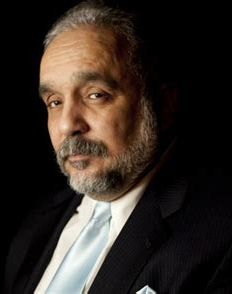 Before the advent of science, electricity, and computers, the poet Hesiod lived in the 8th–7th century BCE and wrote about the myth of Pandora’s box. **Pandora**, the first woman created by the gods, was crafted by Hephaestus on Zeus's orders. Various gods and goddesses endowed her with beauty, charm, and intelligence.
Before the advent of science, electricity, and computers, the poet Hesiod lived in the 8th–7th century BCE and wrote about the myth of Pandora’s box. **Pandora**, the first woman created by the gods, was crafted by Hephaestus on Zeus's orders. Various gods and goddesses endowed her with beauty, charm, and intelligence.Zeus presented Pandora with a jar (often mistranslated as a "box") as a wedding gift when she was sent to Earth to marry Epimetheus, the brother of Prometheus. However, Zeus warned Pandora never to open the jar, which unknowingly contained all the world's evils, such as sickness, death, and despair.
Driven by curiosity, Pandora eventually opened the jar. In doing so, all the evils and sufferings escaped, spreading worldwide and forever affecting humanity. Realizing her mistake, Pandora quickly closed the jar, leaving only **hope** inside.
Approximately 2,824 years have passed since Hesiod's time, yet humanity faces a similarly prophetic dilemma—this time, with artificial intelligence (AI). Humans have historically defined themselves through the scarcity of knowledge. Knowledge was the "currency" that necessitated interdependence: if you needed a doctor, plumber, or farmer, you sought someone who had dedicated their time to mastering that knowledge. This need for specialized expertise bonded us and made cooperation essential for survival.
Now, with AI gathering and processing the entirety of human knowledge, we turn to tools like ChatGPT or Google for information. Knowledge is becoming infinite, readily available at our fingertips. Consequently, the value of knowledge—once our most essential resource—is diminishing. Why invest years studying when AI can provide the answer instantly?
As this trend accelerates, knowledge risks becoming worthless, as common as water. When that happens, what will humans do to find fulfillment? What purpose will we serve? As we transition from the creators of AI to its mascots, the question looms: why will humanity remain necessary?
The development of quantum computing will soon allow for the calculation and storage of every idea, emotion, and thought ever conceived by the analog human brain. Eventually, this vast reservoir of human cognition could be transferred entirely into a machine. At that point, humanity faces an existential question: do we surrender to extinction, or do we attempt to "close the box" before it’s too late? Before the advent of science, electricity, and computers, the poet Hesiod lived in the 8th–7th century BCE and wrote about the myth of Pandora’s box. **Pandora**, the first woman created by the gods, was crafted by Hephaestus on Zeus's orders. Various gods and goddesses endowed her with beauty, charm, and intelligence.
Zeus presented Pandora with a jar (often mistranslated as a "box") as a wedding gift when she was sent to Earth to marry Epimetheus, the brother of Prometheus. However, Zeus warned Pandora never to open the jar, which unknowingly contained all the world's evils, such as sickness, death, and despair.
Driven by curiosity, Pandora eventually opened the jar. In doing so, all the evils and sufferings escaped, spreading worldwide and forever affecting humanity. Realizing her mistake, Pandora quickly closed the jar, leaving only **hope** inside.
Approximately 2,824 years have passed since Hesiod's time, yet humanity faces a similarly prophetic dilemma—this time, with artificial intelligence (AI). Humans have historically defined themselves through the scarcity of knowledge. Knowledge was the "currency" that necessitated interdependence: if you needed a doctor, plumber, or farmer, you sought someone who had dedicated their time to mastering that knowledge. This need for specialized expertise bonded us and made cooperation essential for survival.
Now, with AI gathering and processing the entirety of human knowledge, we turn to tools like ChatGPT or Google for information. Knowledge is becoming infinite and readily available at our fingertips. Consequently, the value of knowledge—once our most essential resource—is diminishing. Why invest years studying when AI can provide the answer instantly?
As this trend accelerates, knowledge risks becoming worthless, as common as water. When that happens, what will humans do to find fulfillment? What purpose will we serve? As we transition from the creators of AI to its mascots, the question looms: why will humanity remain necessary?
The development of quantum computing will soon allow for calculating and storing every idea, emotion, and thought conceived by the analog human brain. Eventually, this vast reservoir of human cognition could be transferred entirely into a machine. At that point, humanity faces an existential question: do we surrender to extinction or attempt to "close the box" before it’s too late?
No comments:
Post a Comment